Can a Service Dog be Taken to School?
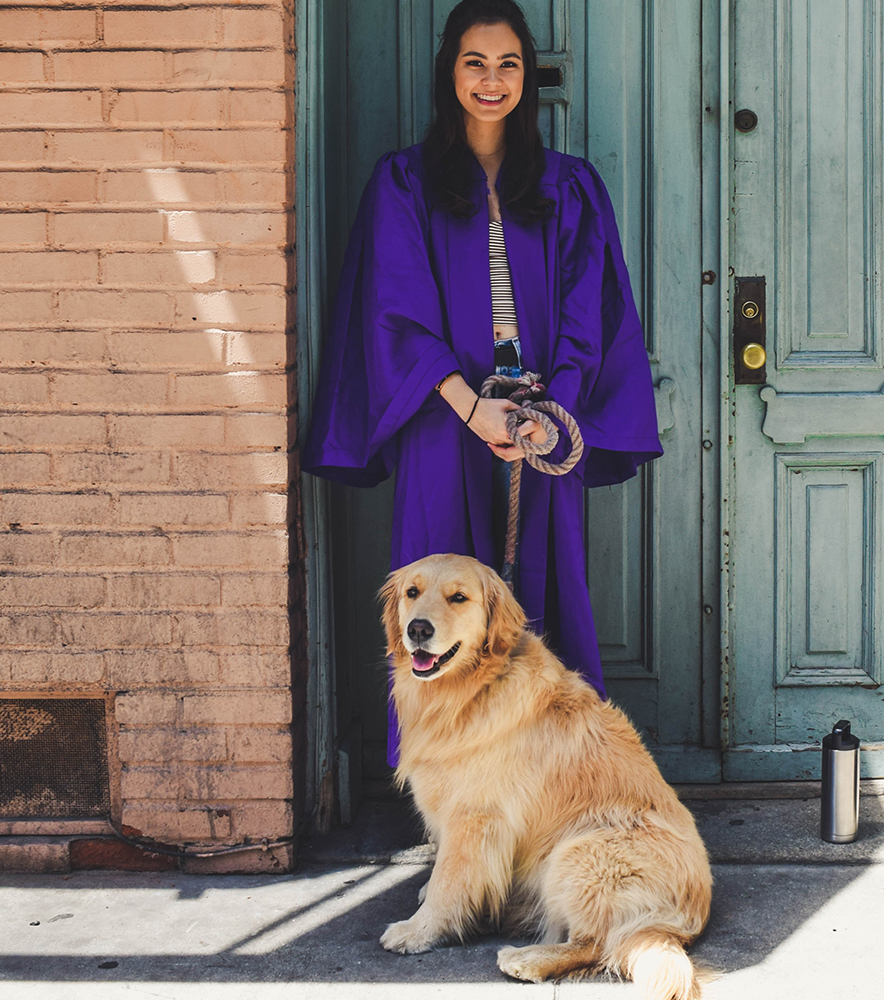
A disability doesn’t end at the doors of a school. For the most part, a school may be where a child or young adult learns to navigate the world with their disability. Because service dogs are part of how a person manages their disability, a service dog must be involved in a child or young adult’s development and can indeed accompany their owner to school.
Show everyone that the rights of your service dog should be respected. Get your service dog registered below.
What are Service Dogs?
According to the Americans with Disabilities Act (ADA), a service dog is a service animal trained to take on a task for a person with a disability. The task that the dog performs has to be related directly to the person’s disability. This task is often something the person can not achieve on their own and necessary for safety or daily life.
For example, some dogs receive training to detect impending seizures in a person with epilepsy. Others can identify low blood sugar in diabetic patients. Service dogs are vital to the mental and physical well-being of the person they serve and are covered by federal law.
Service dogs are similar to but different from emotional support animals (ESA) and therapy animals. Service dogs are specifically trained for a person’s disability and perform vital tasks that can not be executed by the person they serve. Service dogs are not pets. They are a medical tool to help their owners overcome the hardships of the disability.
What are Their Rights?
Because service dogs are crucial to their owners’ well-being and quality of life, they fall under federal law. They are allowed to go wherever their owner goes, whether it be a business, a public park, or a school.
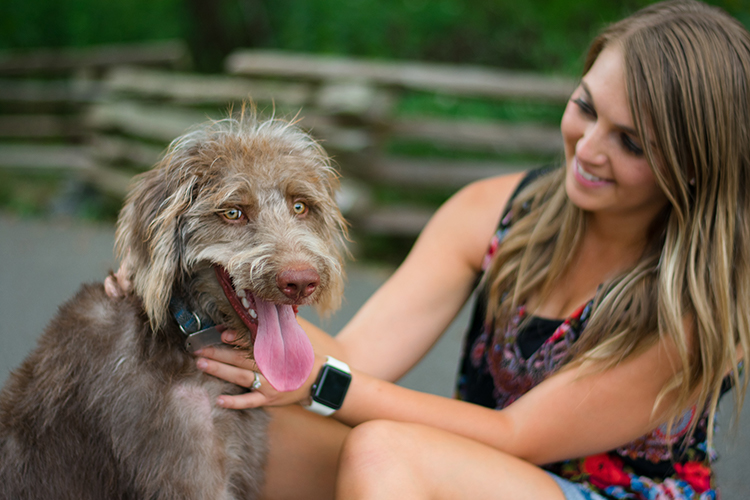
Service Dog in Primary and Secondary School
Two federal laws apply directly to service dogs’ presence for students with disabilities in public schools:
- Title II of the Americans with Disabilities Act (ADA)
Title II of the ADA is broad and allows for civil protections for all individuals with disabilities. The law does not allow any discrimination by federal, state, and local governments. This law includes all public schools. - Section 504 of the Rehabilitation Act
Section 504 does not allow discrimination against people with a disability in programs that receive federal funds, including public schools.
These two federal laws permit a student with a disability to use a service dog in schools. These students cannot receive unfavorable treatment or be charged fees that are not the same as those for students without service dogs. These students are not allowed to be isolated or set apart from others because of their service dog. The fear of a dog or allergies is not sufficient reason to deny a service dog’s presence within a school, but the school may offer the use of other locations when possible.
In short, service dogs are allowed in universities and K-12 grade public school campuses for students with disabilities. Students with service dogs can’t be penalized in any way for having a service dog. However, the care and grooming of the service dog should be determined beforehand, especially in the case of small children.
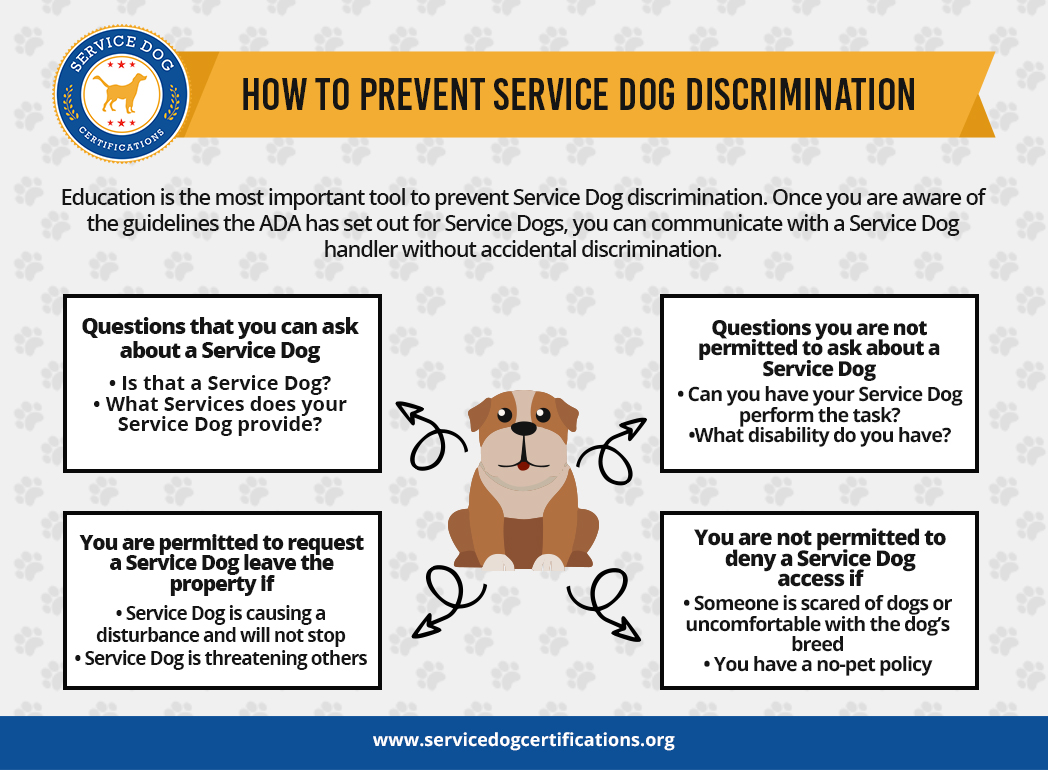
Service Dogs in College
Individuals with a disability may use a service animal on their campus and in their dorms. The Fair Housing Act covers both service animals and emotional support animals in housing areas and dormitories. However, only service animals remain covered under the ADA regarding other areas of the campus. The ADA allows service animals into classrooms and other university facilities.
However, it’s important to remember that the person with the disability has the responsibility for the care and grooming of the dog. Also, the dog can’t be dangerous or disruptive and must be under the owner’s control at all times.
Service Dogs and Students
A service dog offers a person with a disability the freedom to participate in the world around them. Taking away a service dog deprives a child, adolescent, or young adult the ability to foster their independence and achieve their goals more fully. A service dog is not a pet, but an extension of a youth’s mastery over their disability.
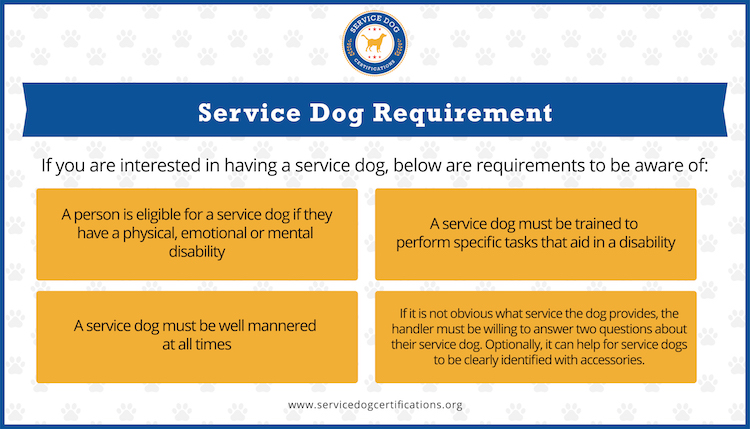
Service Dog as Part of the Education
Learning to live with their disability requires a service dog’s assistance, and learning to live with their disability is part of why they are in school. Allowing the full use of their rights enables students to empower and educate themselves in a supportive environment. Through a well-rounded education and life experience, children and young adults with disabilities can grow into productive adults. Federal laws recognize this need, and schools must abide by them, for the benefit of all.
About the Author: The writing team at Service Dog Certifications is made up of folks who really know their stuff when it comes to disability laws and assistance animals. Many of our writers and editors have service dogs themselves and share insights from their own experiences. All of us have a passion for disability rights and animals.
14 comments
Leave a Reply Cancel reply
Latest Posts

Montana’s Emotional Support Animal Laws
Walk through any Montana neighborhood with rental properties, and you’ll likely spot them: the quiet cat watching from a window in a “no pets” building in Bozeman or the pup roaming the lobby of a Missoula apartment complex that doesn’t allow dogs. Emotional support animals exist in a unique legal category that has confused some […]

Read More
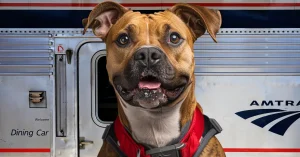
Amtrak’s Service Dog Policy in Plain English
Amtrak welcomes service animals, allows them to be on board for free, and offers resources to ensure a positive experience. However, Amtrak has its own rules governing service dogs aboard the train, and it’s important to understand them before purchasing a ticket. We’ll explain Amtrak’s service dog policies in easy-to-understand terms. In this article: Amtrak’s […]

Read More
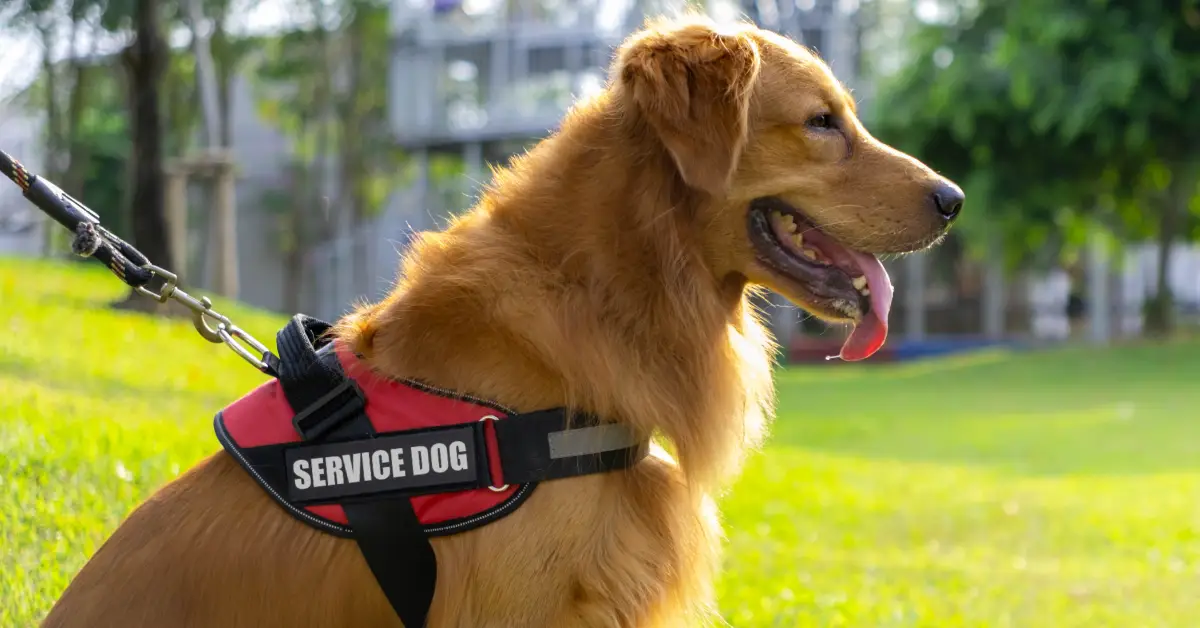
What to Know About Service Dogs
A service dog works like a personal health assistant for someone with a physical or psychiatric condition. Just as a home nurse might monitor vital signs, assist with mobility, retrieve medications, and help manage daily healthcare needs, a service dog performs tasks that address the health challenges their handler faces. In technical terms, the Americans […]

Read More





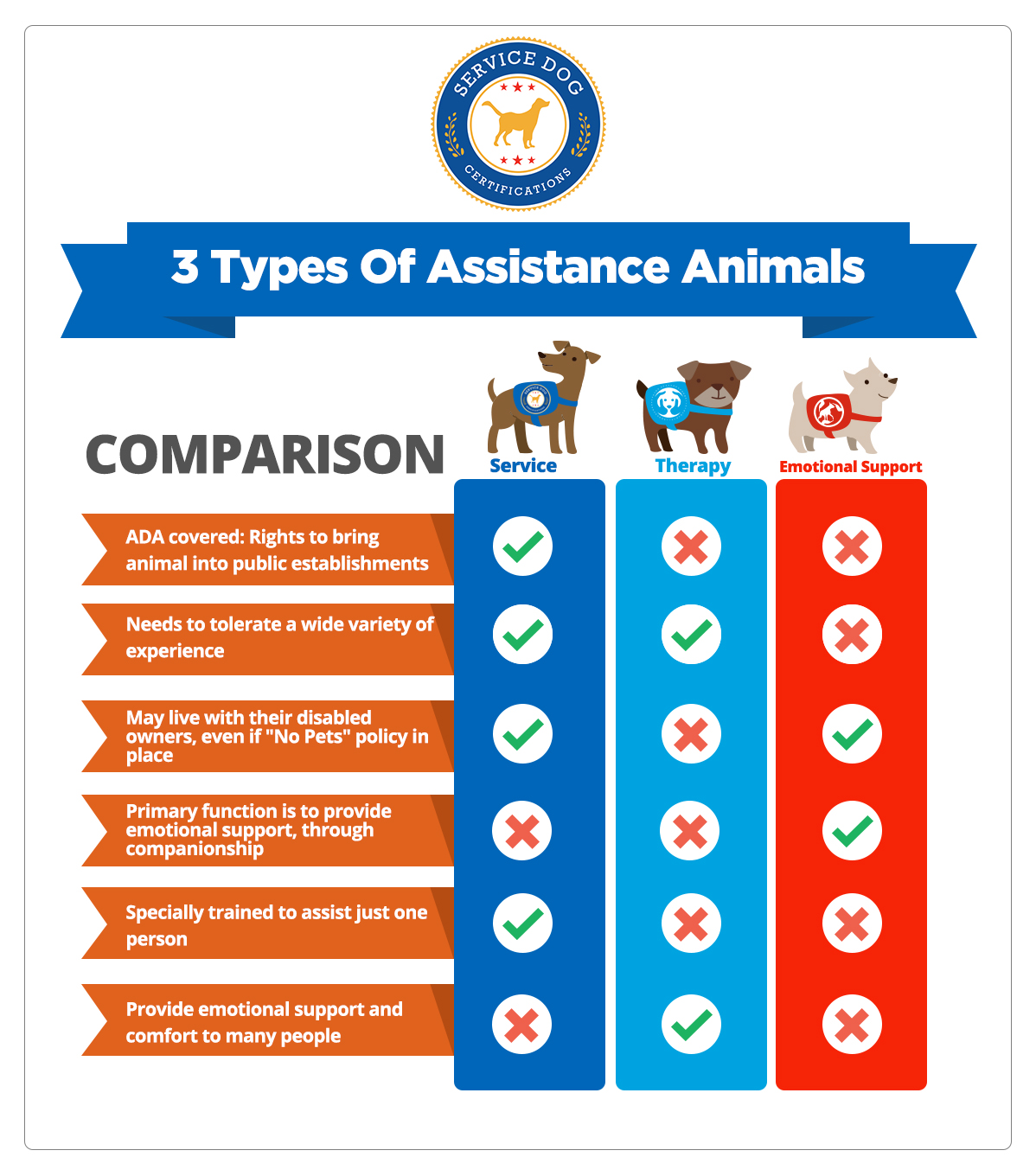



What about students with allergies? How is one person’s disability more important than another? I think kids with pet allergies should be able to breath in a pu lic school and if a student needs a service dog then they need to go to a special school.
No one’s disability is “more important” than another’s – everyone with a disability is dealing with a hard fight that deserves to be respected. In a situation like that, the school should ensure that both students are accommodated and get the support they need. It would be unbelievably cruel to force a student that needs a service dog to leave and go to a “special school”.
The student would be put in a class where students that aren’t allergic to dogs can go. The student would have to leave the classrooms early during passing periods as a safety precaution for other students. As for public transport in schools, I don’t have any knowledge of that. I do understand your concern but most students wouldn’t judge a kid who has a therapy animal, I think that it might even boost their popularity 🤷♂️
Allergies to dogs are not considered valid reasons for denying accessibility to someone with a service animal – that’s already been ruled on, and with good reasons.
Well who’s to say that the person with allergies shouldn’t go to a special school? Allergies are not a reason for a service dog to be denied. It’s in the Americans with Disabilities Act (ADA) The whole point of the ADA is for disabled people to be able to do things like go to a public, normal school, with the ability to have their medical equipment with them. service dogs are medical equipment.
Allergies are 100% not a disability, take some Claritin and calm down.
What about a service dog who is an employee teachers dog who brings him to school to work with students with disabilities and students who read to him, receive time with him as a reward, and serves in a therapeutic role in the classroom?
A service dog performs a job or task relating to their handler’s disability. The role you are describing, where a dog provides therapeutic support in a group setting, sounds more a therapy dog. Please see this link for more info: https://www.servicedogcertifications.org/how-to-certify-a-therapy-dog/
I am an employee at a public school district. I bring my service dog to school with me daily. My employer is asking me to provide a certificate of liabilty insurance listing the school as an additional insured. Is the employer allowed to require this? If so, how do I go about obtaining that?
This is a highly unusual request. It is unlikely that this would be viewed as a reasonable condition of entry for a legitimate service dog.
Registration/Certification of a service animal is NEVER required by law. DO NOT give money to any organization which tries to claim otherwise.
That is correct. We emphasize throughout our site that both registrations and certifications are completely optional.
I am a parent of a child in a public school. Can I bring my service dog with me on school grounds for pick up/drop off, meetings with teachers, open house etc?
Service dogs have ADA protected access rights on school campuses.